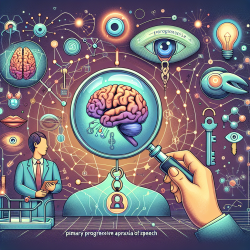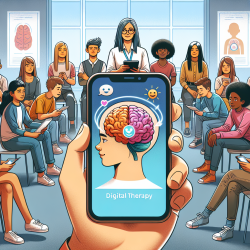In the realm of special education, the transition from childhood to adolescence presents unique challenges for individuals with Autism Spectrum Disorder (ASD). A recent systematic review titled Social cognition interventions for adolescents with autism spectrum disorder sheds light on effective interventions that can enhance social skills during this critical developmental stage. Here, we delve into the key findings of this review and how practitioners can implement these strategies to improve their therapeutic practices.
Understanding Social Cognition Interventions
Social cognition encompasses the mental processes involved in perceiving, interpreting, and responding to social stimuli. For adolescents with ASD, deficits in social cognition can significantly impact their ability to navigate complex social environments. The review categorizes interventions into three primary types:
- Group-based Social Skills Interventions: These involve structured group activities designed to improve social interaction through cognitive-behavioral therapy principles. Programs like PEERS (Program for the Education and Enrichment of Relational Skills) have shown significant improvements in social responsiveness and anxiety reduction.
- Experience-based Interventions: These interventions provide real-world practice opportunities, often in immersive environments. For example, the START program (Social Tools and Rules for Teens) focuses on enhancing social preparedness through interactive lessons.
- Computer-mediated Interventions: Utilizing technology to create controlled environments, these interventions offer consistent and predictable responses, which can be particularly beneficial for adolescents with ASD. Programs like JobTIPS, which uses virtual reality to improve job interview skills, fall under this category.
Implementing Findings in Practice
Practitioners looking to enhance their skills and provide better support to adolescents with ASD can take several steps based on the review's findings:
- Incorporate Evidence-based Programs: Adopting established programs like PEERS can provide a structured framework for social skills training. Ensure to use validated assessment tools to measure outcomes effectively.
- Leverage Technology: Integrate computer-mediated interventions to create engaging and controlled learning environments. These can be particularly useful for remote therapy sessions.
- Focus on Real-world Application: Design interventions that offer practical, real-world social interaction opportunities. This can include role-playing activities, community outings, or virtual reality simulations.
- Customize Interventions: Tailor interventions to meet the specific needs of each adolescent. Consider factors such as cognitive abilities, social anxiety levels, and personal interests.
Encouraging Further Research
While the review highlights several effective interventions, it also underscores the need for continued research, particularly in developing and validating new approaches. Practitioners are encouraged to contribute to this growing body of knowledge by documenting their experiences, participating in research studies, and collaborating with academic institutions.
To read the original research paper, please follow this link: Social cognition interventions for adolescents with autism spectrum disorder. A systematic review.










